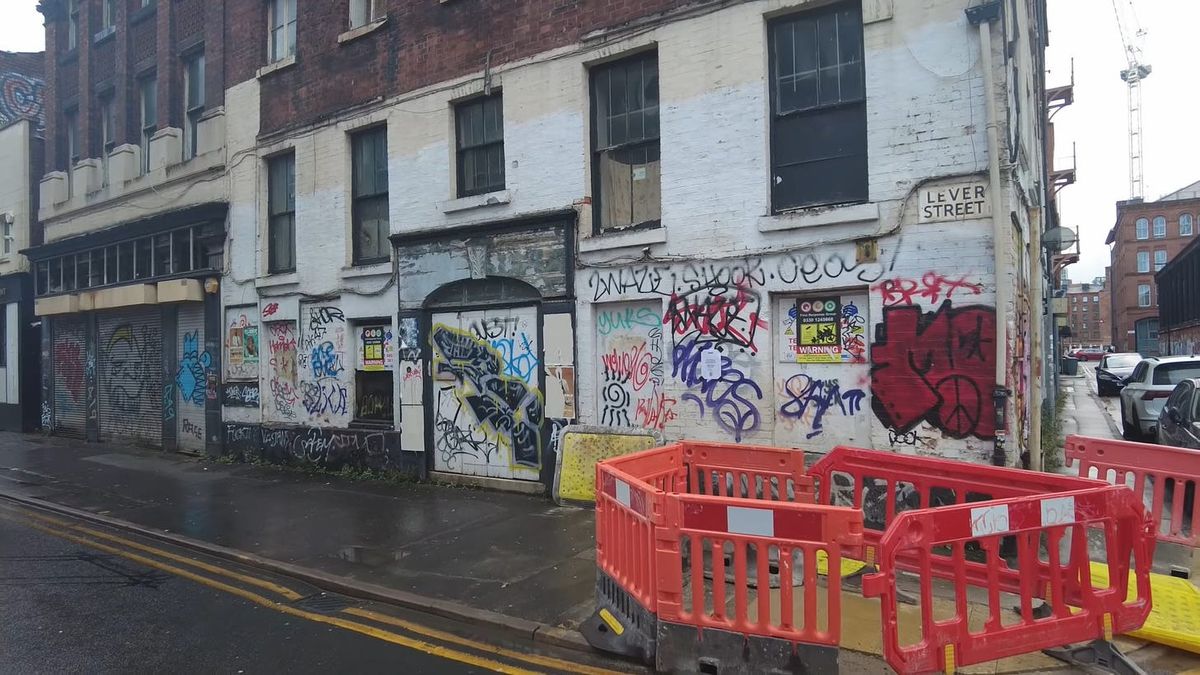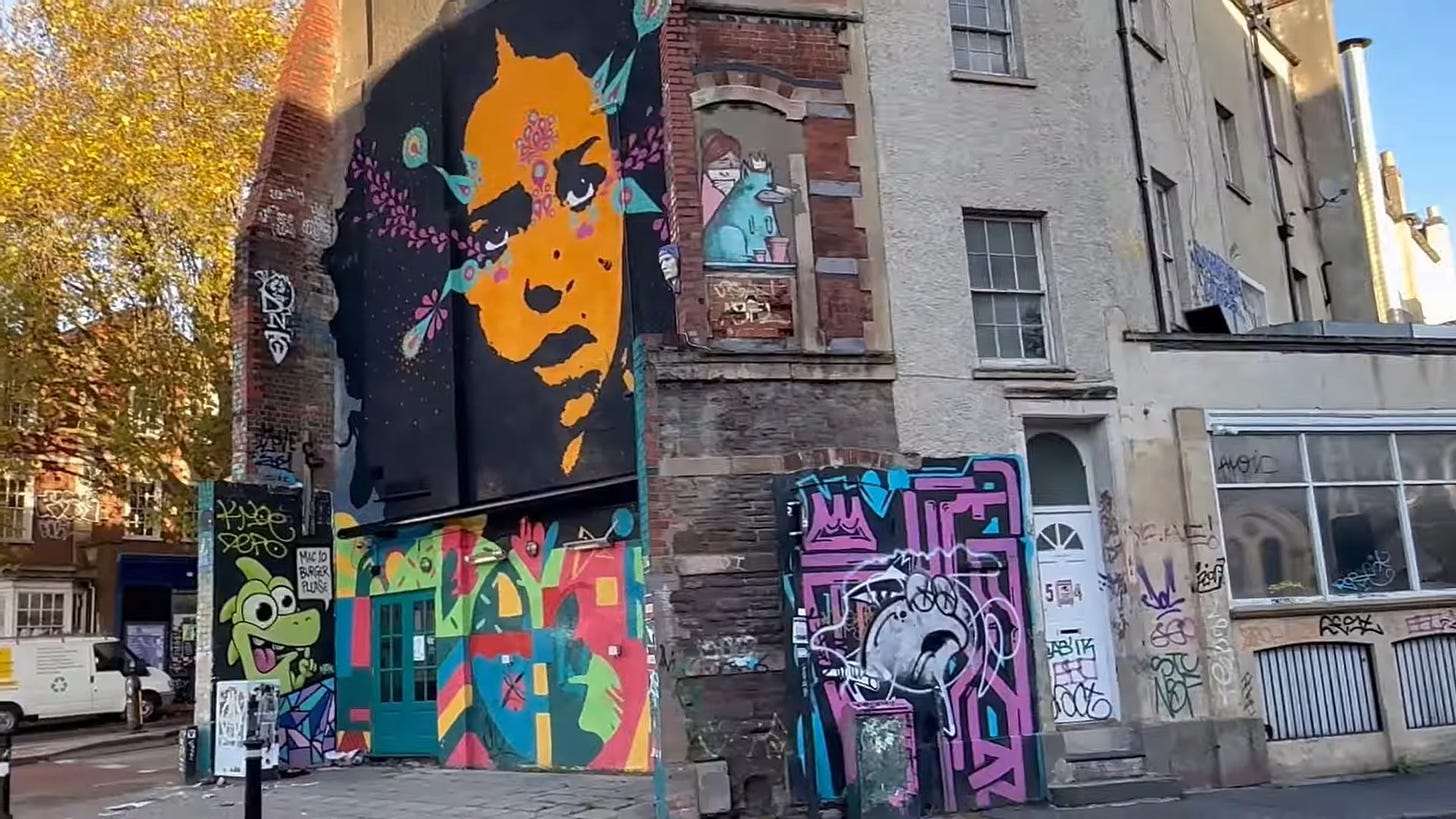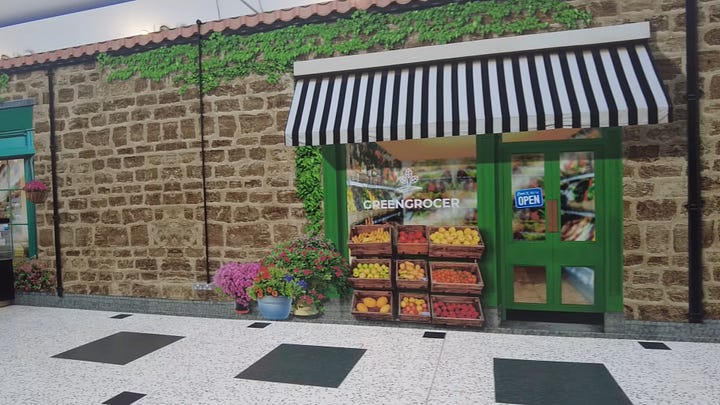Reflections #6

Broken Britain
When l was researching some articles at the end of last year, I stumbled on a new You Tube niche of sorts: people that basically go across the UK highlighting the decline of major cities and towns on the ground. You Tubers like the Wandering Turnip, Charles Veitch, UK Explored and Wendall visit cities and towns up and down the country, documenting precisely what you or I would see were we to go there, and their work is invaluable as such. What they collectively demonstrate is that ‘Broken Britain’ is not just a slogan, it is real.
In many parts of the UK, the decline, decay and destitution has firmly set in. Places like Jaywick, Walsall, Bristol, Grimsby and many others have declined tremendously over the years. It can be observed in the abundance of derelict buildings, ubiquitous graffiti, excessive litter, empty high streets, homes that have fallen into disrepair, bordered up shops and abandoned cars. Increasingly, more and more of the country is descending into a dystopia and no one wants to acknowledge it, certainly not the ruling class.

Many of these are former industrial towns and cities that never fully recovered from deindustrialization. Once the beating heart of British industry that powered the country through the Industrial Revolution, they are increasingly being defined by poverty, crime, homelessness and unemployment. Some of these areas were hit hard by the COVID-19 lockdowns and have yet to recover whilst increasing rent and competition from online retailers have invariably played a part too. It is sad to see and this article feels like an obituary of sorts. The plight of these areas is a damning indictment of governments both past and present.
Recent trips I had to Sutton and Swindon tell a similar story. In a 300 meter walk from Swindon Station to the office of the Lotus Eaters, l passed by two people who appeared to be under the influence of something or other, heavily tattooed, talking loudly with slurred speech and carrying the posture of a marionette puppet. A discarded vehicle lay strewn across a patch of land with toppled metal fences laying on the grass, behind which stood graffiti donned walls.

As I have explored elsewhere on my Substack, the government is broke and many local authorities are on the verge of bankruptcy (Birmingham and Nottingham are two such examples) meaning they don’t have the funds to help redevelop many of these deprived areas. Increasingly, the private sector does not want to invest in areas with little in the way of human capital and a struggling local economy. Metapolitical commentary aside, this is a sad and desperate predicament that these areas face and there are no simple and easy solutions. The life, energy and vitality has been drained from many these areas. You wouldn’t want to visit many of these places, much less live and raise a family there. The only things that flourish there are poverty, crime and destitution, these places have been struck down by a moral syphilis that cannot be cured.
You cannot ignore the mind heist that goes on where they plaster over the unsightly, derelict buildings with pretty pictures of colourful, vibrant shops, basically a complete inversion of reality (totally redefining the phrase “to paper over cracks”). It is a sign of both denial and desperation that they resort to this and it leaves me asking the question “how long can this charade go for?” How long can our leaders maintain the illusion, the façade of a civil society till people start calling this out for what it is.

Fake, boarded up shops have now replaced the high street in some places. In Northern Ireland, the government has spent £8 million pounds on these fake, boarded up shops.[1] You can’t have real shops but here are some fake ones. What is certainly not fake is the grim reality facing many of these areas and that can’t be boarded up, not for much longer anyway.
Notes
[1] McNeilly, B.C. (2014) 'In Pictures: £8m spent on fake shop fronts in Northern Ireland,' BelfastTelegraph.co.uk, 18 April. https://www.belfasttelegraph.co.uk/news/northern-ireland/in-pictures-8m-spent-on-fake-shop-fronts-in-northern-ireland/30196699.html.